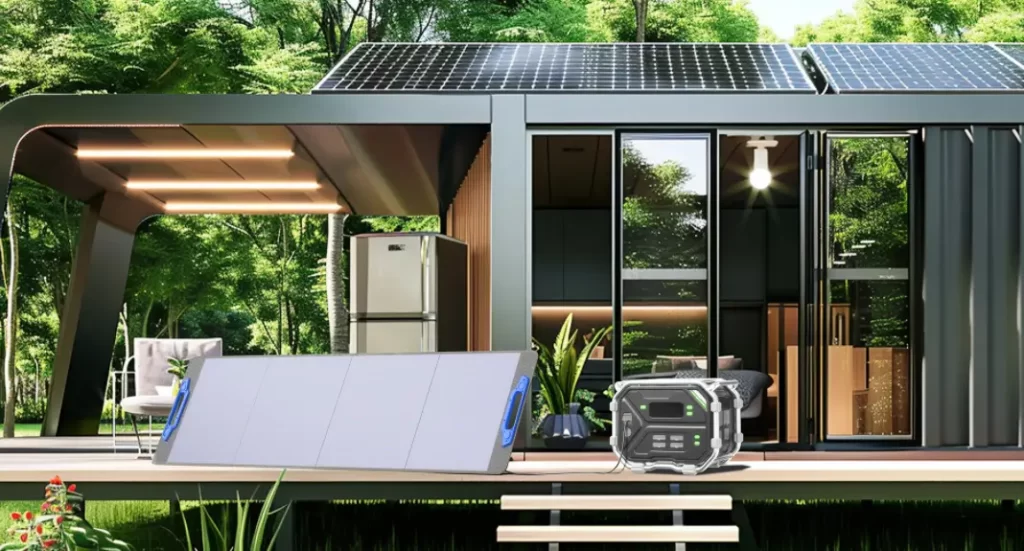
Solar generators are devices that convert sunlight into electrical energy, which can then be used to power various electronic devices and appliances. Here’s a breakdown of how they work:
- Solar Panels: The primary component of a solar generator is the solar panel. Solar panels are made up of photovoltaic (PV) cells, which are typically composed of silicon. When sunlight hits these PV cells, it knocks electrons loose from their atoms, creating an electric current.
- Charge Controller: The electricity generated by the solar panels is direct current (DC). A charge controller regulates the voltage and current coming from the solar panels to prevent overcharging the battery. It ensures that the battery is charged efficiently and safely.
- Battery Storage: The electricity from the solar panels is stored in batteries for later use. Most solar generators use deep-cycle batteries, such as lithium-ion or lead-acid batteries, which are designed to provide a steady amount of current over a long period.
- Inverter: The electricity stored in the battery is in DC form, but most household appliances run on alternating current (AC). An inverter converts the stored DC electricity into AC electricity, making it usable for powering devices and appliances.
- Output Ports: Solar generators come with various output ports, such as AC outlets, USB ports, and 12V carports, allowing you to connect and power different types of devices.
Steps in Operation
- Sunlight Absorption: Solar panels absorb sunlight and convert it into DC electricity.
- Regulation: The charge controller regulates the flow of electricity to the battery, ensuring safe and efficient charging.
- Storage: The generated electricity is stored in the battery for future use.
- Conversion: When you need to use the stored electricity, the inverter converts DC to AC.
- Power Supply: You can plug your devices into the output ports to use the stored solar energy.
Advantages of Solar Generators
- Renewable Energy Source: They use sunlight, which is a renewable and abundant resource.
- Environmentally Friendly: They produce no emissions, making them a clean energy source.
- Portability: Many solar generators are portable, making them ideal for outdoor activities, emergencies, and off-grid living.
- Low Operating Costs: Once installed, the operating costs are minimal since sunlight is free.
Limitations
- Initial Cost: The upfront cost of purchasing a solar generator and solar panels can be high.
- Weather Dependent: Their efficiency depends on sunlight availability, so they may not be as effective in cloudy or rainy conditions.
- Energy Storage: The capacity of the battery limits how much energy can be stored and used later.
Overall, solar generators offer a sustainable and versatile solution for generating and using electricity, especially in remote areas or during power outages.



